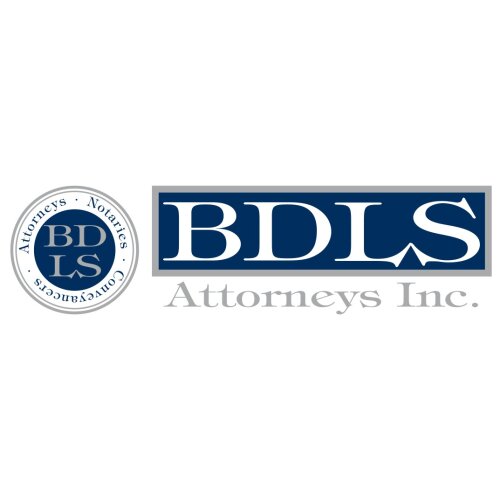Best Wrongful Termination Lawyers in Port Elizabeth
Share your needs with us, get contacted by law firms.
Free. Takes 2 min.
List of the best lawyers in Port Elizabeth, South Africa
About Wrongful Termination Law in Port Elizabeth, South Africa:
Wrongful Termination, or Unfair Dismissal as it's referred to in South Africa, is a situation where an employee is dismissed from their job in a manner that breaches one or more terms of the contract of employment, or a statute provision or rule in employment law. In Port Elizabeth, the laws surrounding wrongful termination are the same as the rest of South Africa, and are primarily governed by the Labour Relations Act (LRA). This Act aims to promote economic development, social justice, labor peace, and democracy in the workplace.
Why You May Need a Lawyer:
You may require legal assistance in instances where you believe you've been unjustly dismissed from your employment without valid reason, or due process was not observed. You may also need a lawyer if you're technically still employed but you're being treated so poorly that you feel you have no choice but to quit. Lawyers specializing in employment law can provide guidance on your rights and how to pursue a case against your employer if you've been unfairly dismissed.
Local Laws Overview:
The Local Labour Relations Act in South Africa notes that a dismissal is unfair if it isn't related to employee’s conduct or capacity, or if it is not based on the employer’s operational demands. Wrongful termination cases mostly depend on whether or not the termination was effected procedurally and substantively fair in line with the Code of Good Practice: Dismissal. Procedural fairness requires employers to issue written notice, conduct a hearing before dismissal, and give the employee the opportunity to appeal. Substantive fairness is when there is a good reason for dismissal such as poor work performance, misconduct, or the employer's operational requirements.
Frequently Asked Questions:
Can I be fired without a warning?
According to the basic conditions of employment in South Africa, an employer cannot fire you without a warning or without following due process- this would classify as an unfair Dismissal.
What should I do if I have been wrongfully terminated?
If you've been wrongfully terminated, it is important to consult an employment lawyer or contact the CCMA (Commission for Conciliation, Mediation, and Arbitration) within 30 days of your dismissal.
What constitutes wrongful termination?
If the termination of an employment contract was unlawful or unfair, it is considered wrongful termination. This could be as a result of discrimination, retaliation, refusal to commit illegal acts, whistle-blowing, or not following fair procedures in dismissal.
What can I expect from a wrongful termination suit?
If successful, you could either be reinstated, re-employed, or you may potentially receive some form of monetary compensation.
Can I sue for emotional distress for wrongful dismissal?
While South Africa's laws do not typically allow for compensation due to emotional distress, in some rare cases there may be exceptions depending on the circumstances.
Additional Resources:
You can reach out to South Africa's Department of Labour for informational resources and guidance. Other organizations that may help include CCMA and worker unions. Legal aid centers and clinics also provide help to those who can’t afford a lawyer. Law societies in your area can provide lawyer referrals.
Next Steps:
If you have been wrongfully terminated, it’s important to act quickly. Keep all documentation and records relating to your job and termination. Seek legal advice to help you understand your rights and possible steps. You may also wish to lodge a complaint with the relevant South Africa Labour Court or the CCMA.
Lawzana helps you find the best lawyers and law firms in Port Elizabeth through a curated and pre-screened list of qualified legal professionals. Our platform offers rankings and detailed profiles of attorneys and law firms, allowing you to compare based on practice areas, including Wrongful Termination, experience, and client feedback.
Each profile includes a description of the firm's areas of practice, client reviews, team members and partners, year of establishment, spoken languages, office locations, contact information, social media presence, and any published articles or resources. Most firms on our platform speak English and are experienced in both local and international legal matters.
Get a quote from top-rated law firms in Port Elizabeth, South Africa — quickly, securely, and without unnecessary hassle.
Disclaimer:
The information provided on this page is for general informational purposes only and does not constitute legal advice. While we strive to ensure the accuracy and relevance of the content, legal information may change over time, and interpretations of the law can vary. You should always consult with a qualified legal professional for advice specific to your situation.
We disclaim all liability for actions taken or not taken based on the content of this page. If you believe any information is incorrect or outdated, please contact us, and we will review and update it where appropriate.










